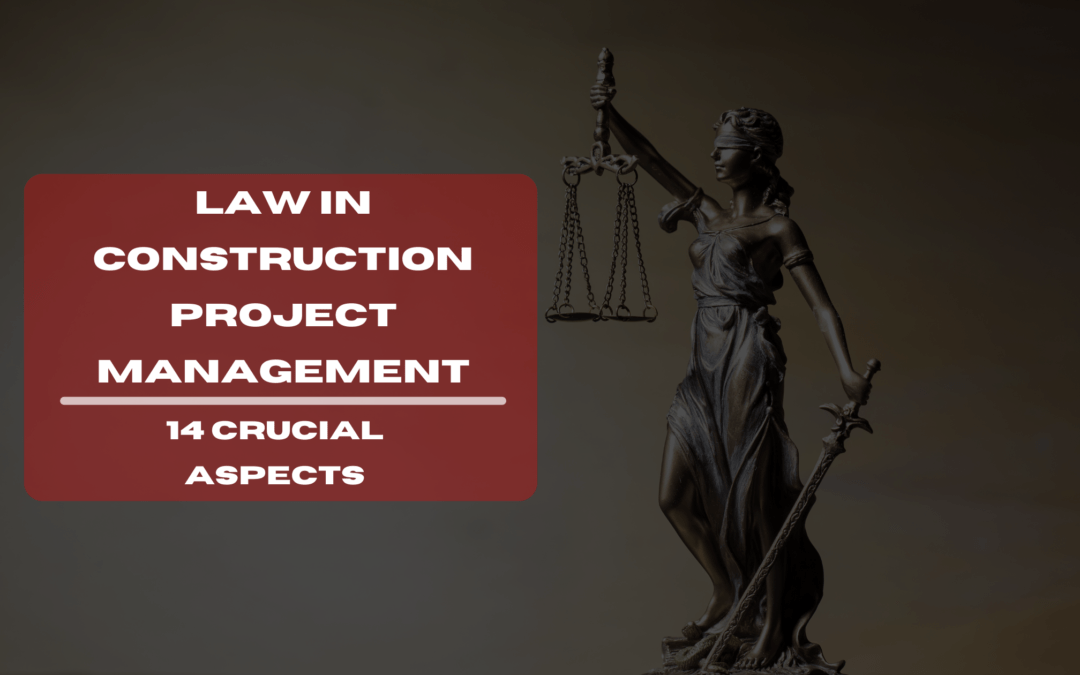14 Crucial Legal Aspects in Construction Project Management
The realm of construction project management is a dynamic one, where meticulous planning and execution are pivotal for successful project outcomes. However, amid the hustle and bustle of project deadlines and milestones, the importance of legal aspects often remains in the shadows. This article seeks to shed light on 14 crucial legal aspects in construction project management, aspects that are seldom discussed yet play a pivotal role in the overall success of construction projects.
Table of Contents
1. Contractual Agreements
The foundation of any construction project lies in its contractual agreements. The role of contracts in project management cannot be overstated. Contracts define the relationships, responsibilities, and expectations of all parties involved in a project. They come in various forms, from fixed-price contracts to cost-plus contracts, and understanding which type suits your project is critical. In India, contracts like Lump Sum Contracts, Time and Material Contracts, and Unit Price Contracts are commonly used.
2. Indian Contract Act
The Indian Contract Act, 1872, serves as the bedrock of contractual agreements in India. It outlines key provisions such as offer and acceptance, legality of agreements, and the capacity of parties to contract. Any construction project manager operating in India must have a comprehensive understanding of this act to navigate the legal intricacies of contracts effectively.
3. Intellectual Property Rights (IPR)
In the realm of construction, intellectual property rights might not be the first thing that comes to mind. However, protecting intellectual property is crucial, especially in cases involving design, engineering, and proprietary technologies. Copyrights, trademarks, and patents ensure that your intellectual property remains yours, even in the complex world of construction.
4. Labour Laws
The construction industry is labor-intensive, and labor laws in India are designed to protect the rights of workers. Understanding employment contracts, minimum wages, working hours, and employee rights is essential to maintain a harmonious work environment and avoid legal disputes that can derail a project.
5. Taxation Laws
Project costs and revenue in India are influenced by taxation laws, notably the Goods and Services Tax (GST). Understanding the impact of taxation on your project’s financials is crucial for effective cost management and financial planning.
6. Environmental Regulations
Construction projects often interact with the environment. Environmental impact assessments and adherence to environmental laws are essential not only for compliance but also for sustainability. Failing to comply with these regulations can lead to legal and reputational issues.
7. Health and Safety Laws
The safety of your project team should be paramount. Workplace safety laws and regulations must be diligently followed to ensure a secure working environment. Ignoring safety laws can result in accidents, legal liabilities, and delays.
8. Dispute Resolution and Legal Recourse
In the world of construction, disagreements and disputes are not uncommon. When conflicts arise, it’s crucial to have mechanisms in place for resolution. In India, two widely-used methods are arbitration and litigation. Understanding the pros and cons of each and knowing when to employ them can significantly impact the project’s outcome. Clear contracts with dispute resolution clauses and a choice of governing law and jurisdiction are essential for efficient dispute resolution.
9. Compliance and Auditing
Construction project managers wear many hats, one of which is ensuring compliance with legal requirements. Compliance extends to everything from labor laws to environmental regulations. Regular audits can help identify areas of non-compliance and provide an opportunity to rectify them before they become legal issues. Remember, ignorance of the law is not a valid defense.
10. Corporate Social Responsibility (CSR)
In today’s world, the concept of corporate social responsibility goes beyond philanthropy. It encompasses a legal obligation to conduct business ethically and responsibly. Companies involved in construction projects often have CSR commitments. Understanding the legal aspects of CSR initiatives in India is vital, as failure to fulfill these obligations can lead to reputational damage and legal repercussions.
11. Real Estate Laws
Construction projects often involve acquiring and developing land. Real estate laws dictate how land can be acquired, used, and transferred. Zoning regulations, land acquisition laws, and property rights must be considered to avoid legal hurdles that can halt a project.
12. Insurance and Risk Management
Construction projects inherently carry risks. Insurance, such as builder’s risk insurance or liability insurance, can protect against unforeseen events like accidents or natural disasters. A robust risk management strategy that includes insurance coverage is vital to mitigate potential financial and legal setbacks.
13. Government Regulations
Government regulations can significantly impact construction projects. This includes obtaining necessary permits, adhering to building codes, and complying with safety standards. A failure to navigate the regulatory landscape can result in costly delays and legal consequences.
14. Contract Management
Managing contracts throughout the project’s lifecycle is a legal aspect often underestimated. It involves ensuring that all parties adhere to the agreed-upon terms, monitoring performance, and handling any contract-related disputes promptly. Effective contract management is essential for project success and avoiding legal disputes.
As construction project managers, your role goes beyond bricks and mortar; it encompasses a comprehensive understanding of the legal landscape in which your projects operate. These 14 legal aspects might not always take center stage, but they are the foundation upon which successful construction projects are built. By integrating legal knowledge into your project management toolbox, you not only mitigate risks but also pave the way for smoother, more successful projects.
Conclusion
In conclusion, a project manager’s responsibility extends far beyond the project’s technical aspects. A deep understanding of these legal considerations is essential to navigate the complex terrain of construction project management successfully. Stay tuned for more insights and real-world case studies that will further illuminate the importance of these often-overlooked legal aspects.
For a detailed exploration of the legal aspects of project management, refer to the informative article on Project Management and Its Legal Aspects.
If you are keen about reading the Ethical Guidelines of Project Management: READ HERE
Stay informed, stay legal, and excel in the world of construction project management.

